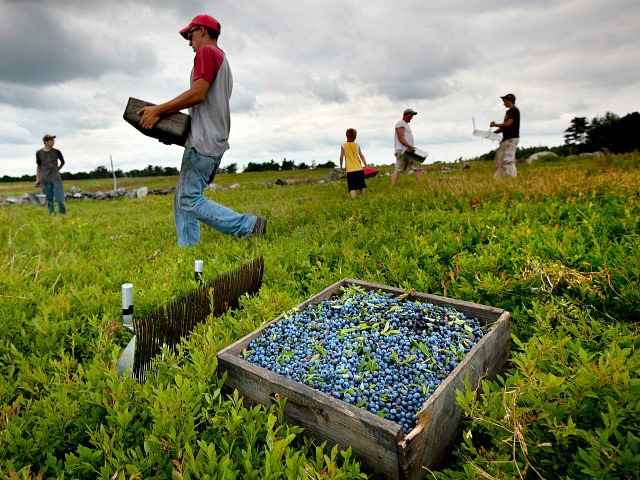An agri-business advertising for jobs under the government’s ‘Pick For Britain’ farm job scheme for furloughed workers required applicants to speak a foreign language to pick vegetables and fruit.
A job opening for an Irrigation Assistant, advertised on the government’s website by the Kent-based food producer S&A, said that some applicants will need to speak Romanian and or Bulgarian to be hired, despite the fact that the job scheme is supposedly geared towards out of work Britons.
“To apply for a skilled position, you will need to speak Romanian and/or Bulgarian fluently. English language is essential for some positions,” the advert said, according to a report in The Sun.
Bosses keen on foreign labour and mass migration advocates in the political and media class have often claimed that Britons are “too lazy” to do farm work, and justified flying in migrant workers from overseas on crowded planes despite the coronavirus pandemic and mass lay-offs at home because locals will not take the jobs.
However, the fact that British workers are not even being considered for at least some farm roles unless they speak obscure foreign languages would seem to lend credence to the claims of commentators such as Gawain Towler, a long-time colleague of Nigel Farage, that domestic recruitment schemes like ‘Pick for Britain’ have been “designed to fail”.
On Tuesday, the Prince of Wales urged students and furloughed workers to apply for seasonal farm work, which would allow them to fill farm vacancies while continuing to receive 80 per cent of their paycheck from the government.
It is estimated that some 7.5 million people are having their pay subsidised by the government during the national lockdown and, in April, it was revealed that of the 50,000 Britons that applied to pick fruit and vegetables.
Just 112 were given positions.
The job openings, it seems, very often came with onerous requirements attached to them, seriously disadvantaging the typical Briton in the hiring process.
For example, the Department for Environment, Food, and Rural Affairs (DEFRA) has listed requirements that workers must live on-site, whether or not they live nearby the farm — even though it was perfectly normal for British farmworkers to be picked up on minibuses or the like near their homes and returned at the end of their shift in the decades before they were displaced by EU migrant workers from poor countries.
Workers that are hired by the farming firm Concordia, meanwhile, are required to spend two weeks in self-isolation, followed by another two weeks of training before being able to start work — requirements which seem almost deliberately designed to favour the lone, temporary migrant worker over the Briton with local connections and familial obligations.
“Anyone who can’t work as part of a small team, or for the full length of the placement, increases the risk of infection to all those on the farm,” the company claimed.
Agri-businesses are alleged by some to prefer hiring foreign workers required to live on-site in temporary accommodation in part because they can be made to pay rent for that accommodation, substantially reducing bosses’ wage costs.
Follow Kurt on Twitter at @KurtZindulka

COMMENTS
Please let us know if you're having issues with commenting.